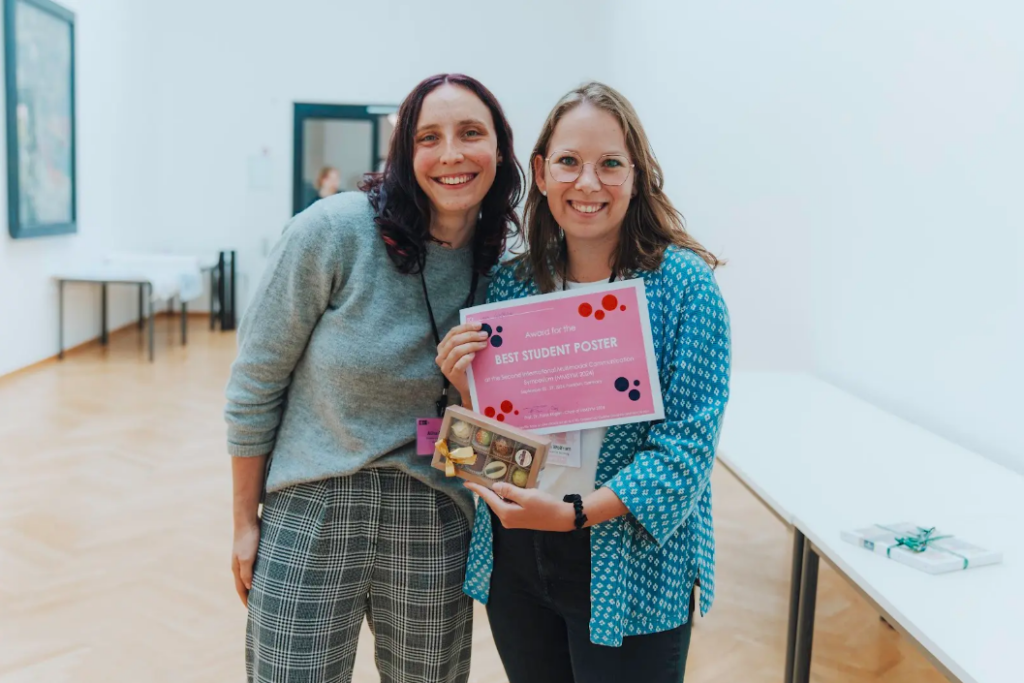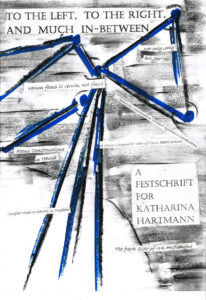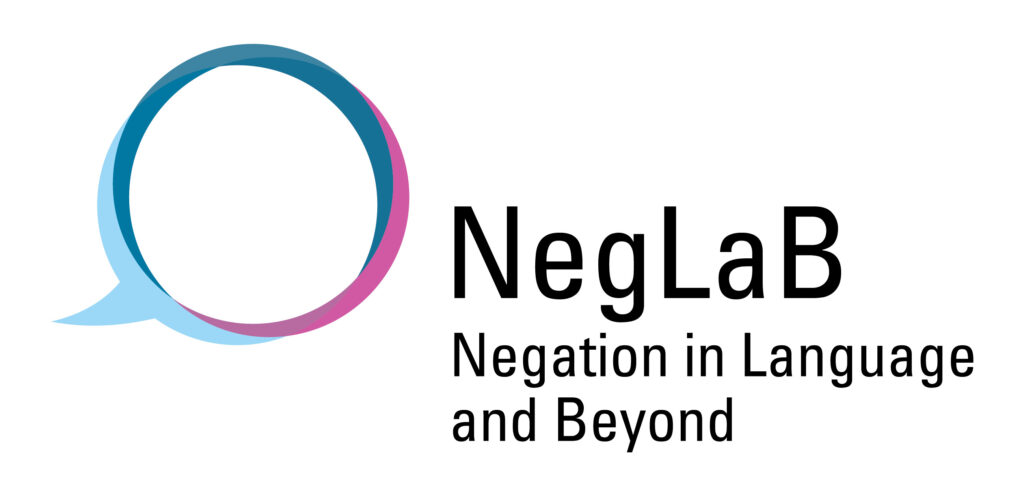Institut für Linguistik
Goethe-Universität Frankfurt
Welcome
Welcome to the Institute of Linguistics! On this website you can find all the important information about the institute.
Potential Field Multimodal Communication
In January 2026, the Potential Field Multimodal Communication (speakers: Cornelia Ebert, Frank Kügler) has started at Goethe University Frankfurt. The research focus aims to bring together scholars from linguistics, literary and cultural studies, theatre and performance studies, film and media studies, psychology, neurocognition, musicology, and computer science.
New DFG Collaboartive Research Centre
In October 2025, the new DFG Collaborative Research Centre Common Ground (CRC 1718) starts at the University of Tübingen. We are delighted that the Institute of Linguistics will be participating with the project Multimodality, Iconicity, and Common Ground: On the Status of Spoken Language and Gesture. (PIs: Kathryn Barnes, Cornelia Ebert & Britta Stolterfoht).
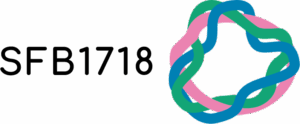
Sinn und Bedeutung 30 (SuB30) 2025 in Frankfurt 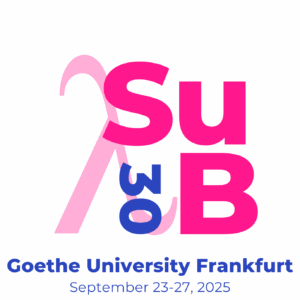
The 30th edition of Sinn und Bedeutung (SuB30) will take place at Goethe University Frankfurt from September 23–27, 2025, organized by the Semantics professorship.
The conference will feature:
- a three-day main session (September 24–26)
- two one-day special sessions:
For more information please visit https://vicom.info/sub30/.
Best student presentation of MMSYM 2024 is from Frankfurt
Employee and doctoral student Alina Gregori as well as Vera Wolfrum (Uni Würzburg) win the award for the best student presentation at this year’s MMSYM.
Best student presentation of Speech-Prosody 2024 is from Frankfurt
Employee and doctoral student Anna Preßler wins the award for the best student presentation at this year’s Speech-Prosody Conference.
Jacob and Wilhelm Grimm Prizes for International German Studies awarded to Ermenegildo Bidese
Ermenegildo Bidese (University of Trento) completed his habilitation in the Department of Modern Philology in Frankfurt in 2021. In 2024 he received the Jacob and Wilhelm Grimm Prizes for International German Studies from the DAAD.
End of Seminars = Start of Term Papers
With the conclusion of the lecture period, the work on the term papers begins. We kindly request all students writing term papers or theses in linguistics to follow our guidelines.
We celebrate Katharina Hartmann’s 60th birthday
During the birthday workshop “Syntax in Focus – A workshop in honour of Katharina Hartmann’s 60th birthday” we presented the festschrift in honour of Katharina on January 12, 2024: “To the left, to the right, and much in between“. It can be downloaded for free as an e-book (PDF) here.
We congratulate the Institute of Linguistics on the newly approved special research area NegLaB
From April 2024, the new DFG special research area “Negation in Language and Beyond” (SFB 1629 NegLaB) will start at Goethe University. The Institute of Linguistics is significantly involved in numerous projects at the SFB.
MA student Farbod Eslami Khouzani receives this year’s DAAD Prize
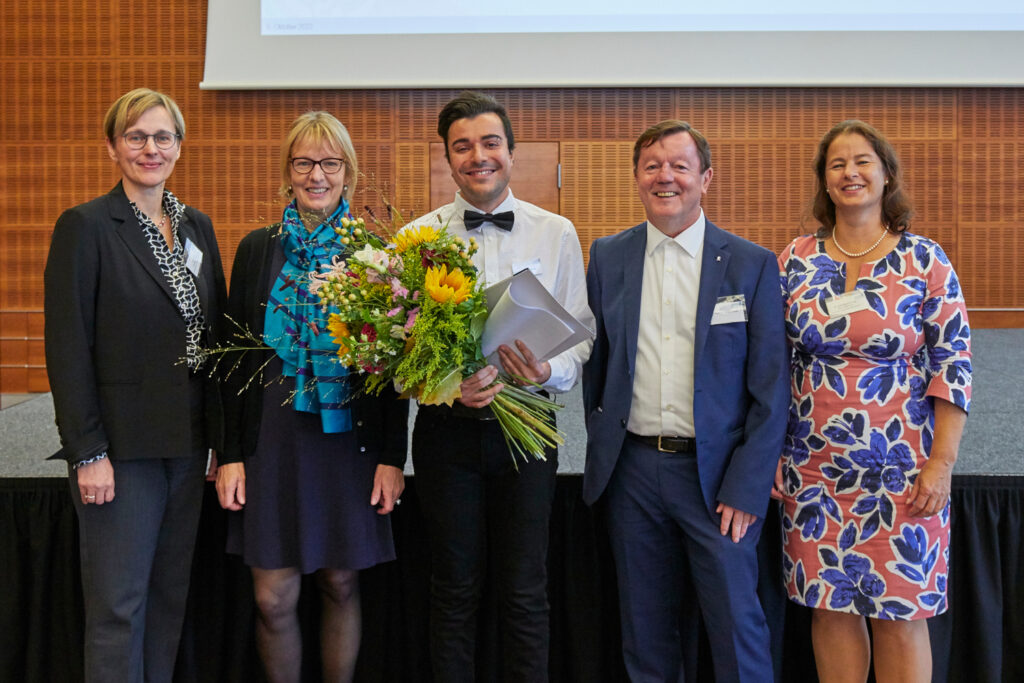
The MA linguistics student Farbod Eslami Khouzani (picture, middle) received this year’s DAAD Prize for international students on October 5th, 2023. His outstanding academic achievements as well as his social commitment were recognized. We congratulate him! More information
Prof. Katharina Hartmann and Prof. Frank Kügler nominated for the best doctoral supervision
The Goethe Research Academy for Early Career Researchers (GRADE) awards a prize every year for the best doctoral supervision. This year, two of the professors from linguistics have been nominated: Prof. Frank Kügler and Prof. Katharina Hartmann. More information
Information for freshman/beginners
- Paper work that cannot be done by e-mail can be deposited in the mail box “Hauspostfach 2” at the central mailroom (IG 257).
- Important websites with current information:
- Information about exams (no „Staatsexamen“):
https://www.pgks.de/
https://www.uni-frankfurt.de/73862497/ZPL___Aktuelles - Information for teachers (ABL):
https://lehrkraefteakademie.hessen.de/lehrerausbildung/pruefungsstellen/frankfurt-am-main/aktuelle-infos
- Information about exams (no „Staatsexamen“):
Studies
The Department of Linguistics at Goethe University Frankfurt offers in collaboration with the Department of English and American Studies, the Department of Psycholinguistics and the Teaching of German, and the Department of Romance Literatures and Languages two linguistic programs, a BA Linguistik taught in German and an MA Linguistics taught in English. In addition, the Department takes part in the BA Germanistik and in the Teacher Education Program.
Further information:
Research
Overview about the research at the institute
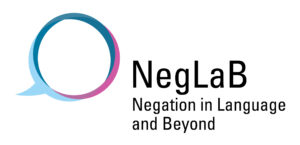 |
|
 |
The Institute of Linguistics, which is based in the Faculty of Modern Languages (FB 10), has special expertise in the fields of language structure (syntax and phonology), semantics and pragmatics, psycholinguistics (language acquisition, language processing), and historical linguistics, and represents known researchers. In addition, there are close contacts and cooperation with the linguists in the Institutes of English and Romance Studies, with philosophy (Faculty of Philosophy and History, FB 08), and the Institute for Empirical Linguistics (Faculty ofLinguistics and Cultural Studies, FB 09).
Besides the Institute of Linguistics, there is also research and teaching in linguistics in other institutes. More details can be found here:
- Institute of English and American Studies
- Institute of Psycholinguistics and Didactics of the German Language
- Institute of Romance Languages and Literatures
- Institute of Empirical Linguistics
The potential of the Frankfurt linguistics is especially in the realm of foundational research in linguistics. The active research is bundled in various projects.
Institute
The following professorships belong to the Department of Linguistics:
- Professur Historische Linguistik (Weiß)
- Professur Phonologie (Kügler)
- Professur Psycholinguistik (Bader)
- Professur Semantik (Ebert)
- Professur Syntax (Hartmann)
In teaching, the following professorships are affiliated to the Institute of Linguistics:
- Professur für die Didaktik der deutschen Sprache (Grimm, kooptiert)
- Professur für Philosophie (Fuhrmann, kooptiert)
- Professur für Spracherwerb (Schulz, kooptiert)
Talk by Maria Aloni (Amsterdam) in the Semantics Colloquium
We are happy to announce a talk by Maria Aloni (Amsterdam) in the Semantics Colloquium.
The talk will take place on campus in IG 4.301.
If you wish to participate virtually via Zoom, please contact Lennart Fritzsche for the link.
Date: February 12, 2026
Time: 4 pm – 6 pm c.t.
Title: Nothing is Logical
Abstract:
People often reason in ways that deviate from classical logic. An influential idea introduced by Grice is that these deviations are not logical mistakes but rather consequences of pragmatic enrichments derived as the product of rational interactions between cooperative language users. Challenging the Gricean tradition, the core hypothesis behind this research is that many of the enriched interpretations we observe in everyday conversation are not derived by Gricean reasoning, but rather result from biases due to our [human] preference to minimise cognitive effort. I will present two such biases that on our hypothesis affect both reasoning and interpretation: (i) a tendency to avoid emptiness (neglect-zero); and (ii) a negative bias towards the parallel processing of multiple alternatives (no-split). In the lecture after introducing the two biases I will discuss some consequences of the core hypothesis and present experimental results that support the main claims.
Talk by Christopher Saure (Wuppertal) in the Semantics Colloquium
We are happy to announce a talk by Christopher Saure (Wuppertal) in the Semantics Colloquium.
The talk will take place on campus in IG 4.301.
If you wish to participate virtually via Zoom, please contact Lennart Fritzsche for the link.
Date: February 5, 2026
Time: 4 pm – 6 pm c.t.
Title: The multiperspectival potential of indirect discourse
Abstract:
There is an overall consensus in the literature on perspectivization in language that indirect discourse (ID) does fundamentally not allow perspective shift of deictic expressions in its scope, which are thus obligatorily interpreted from the speaker’s context (e.g., Schlenker 2004). Consequently, research on perspective shift has been primarily focused on free indirect discourse (FID) for its seemingly unique display of multiperspectivity.
In this talk, I provide theoretical and empirical evidence that this prevalent view of ID does not accurately capture its true perspectival potential. Specifically, I argue that ID allows for the same indexicals to shift to the perspective of the reported utterance’s or thought’s original author as FID, namely spatio-temporal adverbs. Crucially, my proposal entails that perspective shift in ID is only unlocked if certain conditions are fulfilled and that the misconceptions about ID stem from a lack of recognition of these conditions in previous works. I discuss three conditions I deem to be significant for facilitating perspective shift in ID – narrative context, discourse prominence and type of propositional attitude verb – and highlight how these factors are relevant for the interpretation of FID as well. Moreover, I present the results of two experimental studies which show that, by taking into account the aforementioned factors, we can (a) increase the acceptability of shifted ID readings; and (b) significantly affect the interpretation of temporal indexicals in German ID.
Finally, I propose that these findings necessitate a uniform treatment of ID and FID. I briefly discuss which of the popular approaches to explain FID’s multiperspectivity – a double-context account (e.g., Schlenker 2004, Eckardt 2014) or a mixed quotation analysis (Maier 2015) – provides the ideal framework for this task.
Talk by Marius Wecker (Bochum) in the Semantics Colloquium
We are happy to announce a talk by Marius Wecker (Bochum) in the Semantics Colloquium.
The talk will take place on campus in IG 4.301.
If you wish to participate virtually via Zoom, please contact Lennart Fritzsche for the link.
Date: January 29, 2025
Time: 4 pm – 6 pm c.t.
The talk will be held in German.
Title: (Diskurse)-Commitments als Elemente politischer Positionierung. Ein theoretischer Ansatz zur Verknüpfung von formaler Pragmatik und Diskursanalyse
Abstract:
Pragmatik und Diskursanalyse repräsentieren zwei unterschiedliche Paradigmen innerhalb der Linguistik, was sich maßgeblich aus ihren jeweiligen ideengeschichtlichen Verortungen erklären lässt. Während die Pragmatik in der angloamerikanischen Tradition der analytischen Philosophie verankert ist, weist die Diskursanalyse – insbesondere in ihrem Rückgriff auf Foucault – deutliche Bezüge zu kontinentalphilosophischen Denkströmungen auf. Ziel der Arbeit ist es, beide Ansätze systematisch miteinander zu verbinden, da davon ausgegangen wird, dass sich ihre unterschiedlichen theoretischen Perspektiven und methodischen Zugänge wechselseitig fruchtbar ergänzen. Zu diesem Zweck greife ich mit dem Table-Model (Farkas & Bruce 2010) und dem Begriff des Commitments (Geurts 2019; Krifka 2015) zwei formale Konzepte der Pragmatik auf und bringe sie in theoretischer Hinsicht mit dem diskursanalytischen Konzept der politischen Positionierung in Verbindung. Die zentrale Arbeitshypothese lautet dabei, dass sich mithilfe des Commitment-Begriffs zeigen lässt, dass Äußerungen in Talkshows im Kontext des Gender-Diskurses primär nicht auf ein Update des Common Grounds abzielen, sondern auf eine Positionierung im politischen Diskurs.
Talk by Cécile Meier (Frankfurt) in the Semantics Colloquium
We are happy to announce a talk by Cécile Meier (Frankfurt) in the Semantics Colloquium.
The talk will take place on campus in IG 4.301.
If you wish to participate virtually via Zoom, please contact Lennart Fritzsche for the link.
Date: December 18, 2025
Time: 4 pm – 6 pm c.t.
Title: Adjectival Horn Scales Conzeptualized
Abstract:
Pairs of adjectives forming a Horn Scale like <smart, brilliant> are empirically quite well investigated with respect to whether they trigger scalar implicatures or not. The inference of a scalar implicature to the negation of the extreme adjective is rare and more readily derived if the extreme adjective is mentioned in the context (Doran et al. 2009). That mentioning is the not the only factor that governed the derivation of the implicature is until now under discussion. More recently, Hu et al. (2022) argued by investigating Language Models like GPT2 that the expectedness of the stronger alternative captures scalar implicature rates regardless whether the more informative alternative is mentioned in the context or not. They find that „conceptual expectedness“ (similarity-weighted surprisal) is more apt to capture the empirical psycholinguistic data than „string expectedness“ (raw surprisal).
Talk by Lisa Hofmann (Stuttgart) in the Semantics Colloquium
We are happy to announce a talk by Lisa Hofmann (Stuttgart) in the Semantics Colloquium.
The talk will take place on campus in IG 4.301.
If you wish to participate virtually via Zoom, please contact Lennart Fritzsche for the link.
Date: December 11, 2025
Time: 4 pm – 6 pm c.t.
Title: Negativity without negation: Counterfactual propositions and at-issueness
Abstract:
This work addresses the question of what are the levels of representations involved in representing the discourse-effect of negation, by investigating the anaphoric polarity-sensitivity of negativity-tags. Anaphoric negativity-tags (neg-tags) occur naturally after negative clausal antecedents, but not affirmative ones (1). These include: (2a) English neither-tags, (2b) ‘not even’ tags (Klima 1964), and (2c) factive uses of elliptical ‘why not’ interrogatives (Hofmann 2022; Anand et al. 2021).
(1) I think that the defense lawyer’s closing statement {didn’t make / # made} an impact in this case.
(2) a. Yeah, and neither did the testimonies.
b. Yeah, not even on the public perception.
c. Yeah, and the jury foreperson explained why not.


